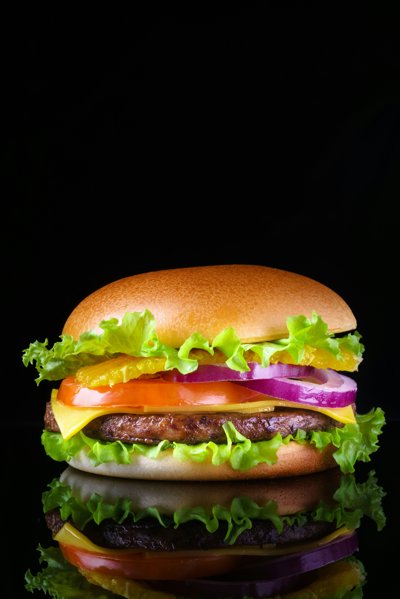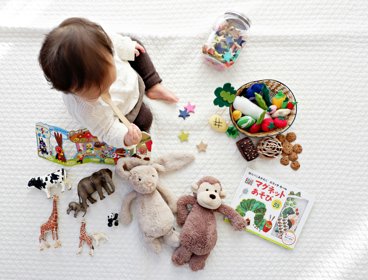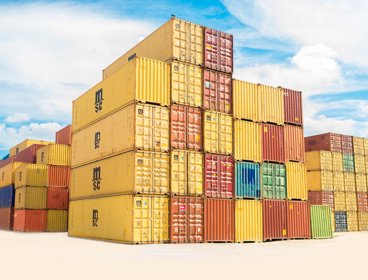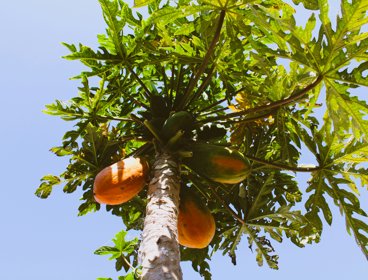Associate Professor of Geography Ian Cook of the University of Exeter is an expert in following global supply chains of everyday goods, through his work titled follow the thing. His research began in 1992, when he spent six months in Jamaica working with women in a packing house where papayas were washed, graded, wrapped and boxed ready for export. You can read about that research.
Ian’s research tells complex stories of people’s lives and global trade. These stories are not perfect or neat - they can be complex and Ian argues that they need to be appreciated in this way. Ian hopes that his stories will encourage deeper appreciations of the work that goes into the things we buy. Aside from his formal research papers, he runs a spoof online shop and a Twitter profile.
Commodity definition
A commodity is a good or service that is exchanged for a given monetary value. They are the things that we buy and sell on an everyday basis.
Why is Follow the Things important?
Whatever you study, wherever you study, it is your geography as well as somebody else’s. We are not just watching things happen, we are involved in shaping what is happening around the world. I am interested in who pays the price for our cheap commodities. Where is the money being saved? And where are the profits going? These are some of the questions that I try and address in my follow the thing studies.
This is about much more than shopping. It is about how you understand you role in the world and what you can do differently. It is about seeing the geographical connections and the hidden social relations all around you. This goes against seeing the economy as just a bunch of numbers, to focus on relationships between people. We should ask what people can do in life, wherever they go and whatever they end up doing.
What is the most interesting study you have come across?
Strangely, it would be the one about hair extensions. The singer Jamelia tries to find out where the extensions that she wore on a national lottery TV show came from. It turns out that they can be traced back to a fascinating relationship between an Indian mother and her daughter. The mother, who Jamelia finds in an Indian city, has her hair shaved off at a temple in thanks for recovering from a serious illness. So Jamelia finds that out first of all. But what do the mother and daughter do with the money? Well, they use it to feed people that have not got any food. It actually turns out to be this incredibly positive story.
One of the most interesting things about this case study is that students sometimes do not like its outcome. It does not find the exploitation that they believe they should find – so maybe it is a cover-up or something like that. But, to me, that is what is really good about it. There is often an expectation with globalisation that you will always find some miserable story and you are going to feel guilty and rubbish at the end of it. But the complexity is such that there are any number of routes that you could take and any number of stories that could be told. It is not always going to be depressing. But it will always be heart wrenching – that is the idea.
What is the aim of 'following'?
It is about finding out the relations between yourself and someone you do not know. The main thing is that we do not really know what they are, but it is relatively easy to find out. The Jamelia story is very emotional. It really gets you – there is a tear in your eye when you watch it. But you do not feel guilty. It is almost like you wonder what feeling you are experiencing.
There are all sorts of stories behind commodities and the question you ask is: “I wonder what I will find this time?” The following can actually come up with some really surprising connection. I like the idea of appreciation as being the main thing that comes across. You really appreciate the work that you do not realise people do for you in day-to-day life. That appreciation can sometimes make you feel guilty, but it can also involve feelings of affection or thanks.
How can you follow something yourself?
There is a follow it yourself page on my website. This contains some really useful resources for how to do the research yourself. There are two main ways to follow something. Firstly, you can search for the name of your commodity, followed by the word 'sweatshop'. This is a helpful search because you do not often have stories of working conditions unless there is a strike or some sort of accusation of a sweatshop. Often articles argue why a factory is not a sweatshop. This route of enquiry can give you a vivid insight into what it is like to work in a factory that makes your stuf
If it is a complex object, another approach might be more helpful. Try looking up the individual ingredients. Then you can begin to get a sense of what a commodity actually is. If you do choose something relatively simply like fruit or clothing, you’ve got a good idea of the sort of place it came from because it will usually say on the label. But if you choose lipstick… I mean, do we actually know what it is made out of?
Can you follow anything?
I still believe that you can find out something about anything that you chose to follow. For example, I recently bought a tangle teezer hairbrush, some Marks and Spencer school clothing and a SpongeBob magazine. With the magazine, I looked for the information of who the publisher was. Then I looked up what was happening with the publisher. Then I found a news story about them being taken over by a venture capitalist two years ago, which led to the pension scheme being closed down.
I also found out that the tangle teezer hairbrush was a failed Dragons Den idea. So there is always some kind of story somewhere about something. It is fairly random but it is about looking for specific things. You have to examine the commodity itself and see what it tells you. But if you do follow something, it is essential that you follow something that matters to you or that you could not do without. Whatever you find out, you cannot just dismiss it. It makes you think more carefully about your own role in the world.
Why does our food come from all over the world?
More and more international foods are available in the UK for a number of reasons. One is that, since the 1960s, the UK has become a much more multicultural society. People have moved to live here from all over the world. Another is that international tourism has become more affordable for more people. A third is that restaurants serving food from around the world have become a feature of almost every hight street, So, for example, you or your family might have moved to the UK from the Caribbean. You might have been to the Caribbean on holiday. And/or you might have eaten in a Caribbean restaurant somewhere. You might want to eat that food at home – because it is great, and maybe because it gives you a taste, a reminder, of being somewhere else. By finding the ingredients and cooking it yourself, you are recreating a bit of that experience.
Often food manufacturers and restaurants draw on the stereotypes from particular parts of the world, whether through dress or music or decor, to create some sort of ‘authentic’ sense of a far off place. But often when you look more closely at these stereotypes, you find much more interesting, diverse and interconnected stories. In the papaya story, for example, if you had to describe people's ethic/national identity, Pru and Phillips are black Jamaican, Emma is white British, Jim is white Jamaican, Mina is British Asian, and Tony is white British with Israeli business partners. So, when you watch the ads for food that supposed to be from a particular place, or an authentic part of a particular 'culture', you have to question where in the world are they saying this stuff is coming from? Where do the people in the ads supposedly come from? Who is bringing the food to whom? Representations of Britishness in food adverts can stereotype and cast different groups as insiders and outsiders, closer to or more distant from an assumed 'us'. The reality is that culture, national identity and trade are much more mixed up than that. That is a mainly cultural answer to this question. I could talk about globalization and changes in transportation technologies like containerization too, if you like.
How do you feel when confronting exploitation?
I was shocked when I started my research. I had never travelled outside of the UK before, so moving to rural Jamaica and spending a long time working on this farm was very different. There was an awful lot to get used to. I was trying to be a very good researcher, but at the same time trying to get on with people – which sometimes feel like two separate things.
I would take everything anyone said very seriously and then I realised about three months into this that some people were just teasing me and trying to get a reaction out of me. It was like a baptism of fire, research wise. It sort of turned my head inside out, made me realize what a bubble I had been living in. Why did I not know this?
What is it like writing academic articles in a tongue-in-cheek style?
I absolutely loved the first thing I wrote creatively. I was writing in the way that you would talk to your mates. I just felt like I could write this, I could say it like this, why not? I was trying to write about something that was really difficult to describe in a straightforward way. By playing around, I was able to write about things that I could not write in any other way. Occasionally you get some people that are quite traditionalist and feel that it does not come across as being proper research.
For example, my papaya paper is different from a lot of other research as its aim is to leave you with a reaction to it and be left thinking about it afterwards. A lot of what I do tries to bring out geographical issues in everyday conversation. It is about putting yourself in a number of different people's shoes. The ways in which all of their lives link up does not necessarily make total sense. They jar. That is what you want your reader to feel, to think about.
What does it take to become a good geographer?
It is not just about passing an exam. It is all about understanding the world better and being really curious about stuff. You need to have the confidence not to just accept what you are supposed to learn and what you are told is geography. You need to make some of it yourself. The geography you create is much more powerful than the stuff you have to learn to get a good mark in an exam. It can affect you more as a person.
Are you very conscious of ethical concerns when you go shopping?
Yes and no. I buy fair trade coffee and bananas. But for someone at my stage in life, I should probably worry more about my mortgage because it is the biggest amount of money I spend. What banks do with my money is just as important as what I do with it. My mortgage is now with the Cooperative bank and I am really happy about that. It takes the pressure off what other types of goods I buy.
Because of the way in which certain corporations operate, where you buy things is as important as the things you buy. So you need to step back a little bit and think not just about yourself as an individual, but also of your role in broader collectives. In school, for example, students can exercise that responsibility through a school council. Schools have bigger spending power. Could you buy more fair-trade ingredients for school lunches, or ask suppliers of for IT equipment that does not contain conflict minerals? This is about citizenship as much as it is about consumption. It is about actions people choose to take – such as signing a petition, putting up a poster, going on a demonstration or just talking to somebody about the issues.
Ian was interviewed in October 2012.



